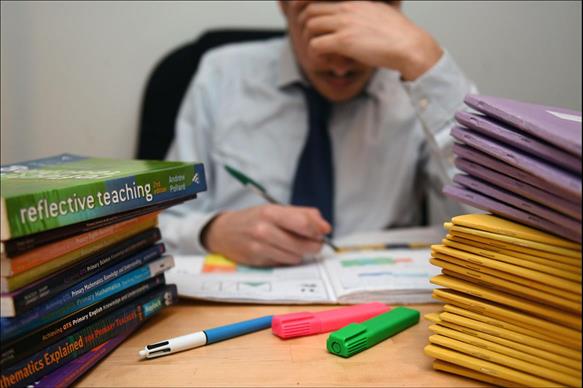
UK's LGBT teachers still scarred by the legacy of homophobic legislation more than 30 years on
(MENAFN- The Conversation) 'Our children, our choice,' shout theprotesters outside two schoolsin Birmingham. Here, parents of mainly Muslim faith havetaken their children out of schoolarguing that same sex relationships haveno place in the school curriculum .
This comes after parents called for an end to the use of story books featuring same sex couples – which formed part of a programme teaching school children about equality. Parents have also raised concerns that from 2020inclusive relationship and sex educationwill be compulsory in all schools. This means that, for the first time, teachers will be obliged to mention same sex relationships when teaching children in both primary and secondary education.
As the protests suggest,LGBT people are still seen as 'other'in society. So it's not surprising thatour researchshows that LGBT teachers still don't feel safe in the workplace.
We found this to be particularly the case for teachers who worked during the Section 28 era. This is the clause of the 1988 Local Government Act that penned discriminatory statements into legislation. It stated that: 'A local authority shall not (a) intentionally promote homosexuality or publish material with the intention of promoting homosexuality; (b) promote the teaching in any maintained school of the acceptability of homosexuality as a pretended family relationship.'
The promotion of homosexuality in schools and local authorities was made unlawful after controversy surrounding a children's book,Jenny Lives with Eric and Martin . The book showed a child living with two gay fathers. It was available in the library of a school run by the Labour-controlled Inner London Education Authority and the book was condemned by Kenneth Baker, the then Conservative Secretary of State for Education. The resulting controversy led to the Conservative government passing Section 28 of the Local Government Act.
Long lasting impact
We found that teachers who worked during theSection 28era are more cautious, vigilant and anxious in their school workplaces than those LGBT teachers entering the profession more recently.
LGBT teachers were asked which members of the school community were aware of their sexual identity. Only 20% of Section era teachers indicated being out to all school colleagues, while 88% of teachers were who started after section 28 was repealed in 2003. Almost half of these teachers were out to their pupils, compared with only 20% of Section 28-era teachers.

Protestors demonstrate outside Anderton Park Primary School, in Moseley, Birmingham, over LGBT relationship education materials being used at the school.
Jacob King/PA Wire/PA Images
Some of the Section 28-era respondents who were not out to pupils, wrote of worrying constantly about being spotted with their same sex partner by pupils and their parents. And almost all Section 28 respondents lived well away from their school communities. A number of Section 28 teachers also described how, despite being ambitious when they initially joined the teaching profession, they were no longer seeking promotion into school leadership – fearing that with leadership comes greater scrutiny of one's private life by the school community.
Some of our LGBT teachers told us that to discuss a same-sex partner in the school workplace felt like an 'overshare'. And that in the school workplace, same-sex relationships are often conflated with the act of sex – in a way that heterosexual relationships are not.
Our research showed that the Section 28-era teachers still take great care to separate their personal and professional identities and this places considerable extra strain on what is already a highly demanding and tiring job.
Living in fear
The LGBT teachers were also asked whether they had ever accessed help for anxiety or depression linked to their sexuality and role as a teacher. Almost half of the Section 28 era teachers reported having suffered from anxiety or depression linked to their sexuality and role as a teacher. Only 24% of teachers who started after 2003 reported experiencing similar mental health issues.

Teachers spoke of being scared that pupils would find out about their sexuality.
Chris Radburn/PA Archive/PA Images
Since Section 28 was repealed in 2003, equalities legislation has helped to give LGBT teachers occupational security in the workplace.The Equality Act of 2010prevents discrimination on the grounds of LGBT identity, and theEqual Marriage Act of 2013has raised the status of same-sex relationships in the media and in society in general. But as our research shows, despite these advances in equalities legislation, those LGBT teachers who experienced Section 28 remain extremely cautious, vigilant and anxious in their school workplaces.
Headteachers are calling for urgent support from the government to teach classes on equality and respect amid fears that the disruption could escalate further. And as the recent protests show, it's clear that for many LGBT teachers, school is not yet a place where it's fully safe to be themselves.
Homophobia
Teachers
sex education
School
LGBT
fee protests

Legal Disclaimer:
MENAFN provides the
information “as is” without warranty of any kind. We do not accept
any responsibility or liability for the accuracy, content, images,
videos, licenses, completeness, legality, or reliability of the information
contained in this article. If you have any complaints or copyright
issues related to this article, kindly contact the provider above.
















Comments
No comment